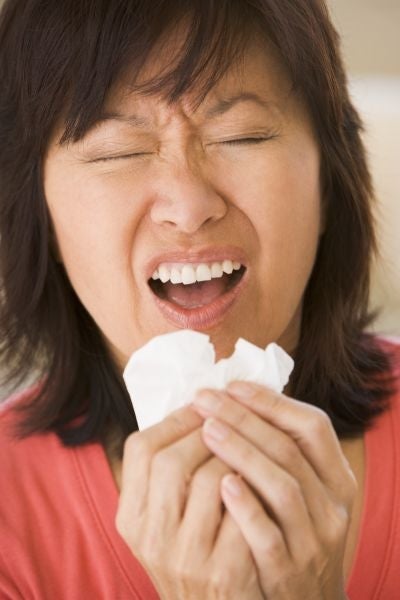Your support helps us to tell the story
From reproductive rights to climate change to Big Tech, The Independent is on the ground when the story is developing. Whether it's investigating the financials of Elon Musk's pro-Trump PAC or producing our latest documentary, 'The A Word', which shines a light on the American women fighting for reproductive rights, we know how important it is to parse out the facts from the messaging.
At such a critical moment in US history, we need reporters on the ground. Your donation allows us to keep sending journalists to speak to both sides of the story.
The Independent is trusted by Americans across the entire political spectrum. And unlike many other quality news outlets, we choose not to lock Americans out of our reporting and analysis with paywalls. We believe quality journalism should be available to everyone, paid for by those who can afford it.
Your support makes all the difference.Winter may bring welcome relief from hay fever symptoms, but spending time hunkered inside the house can stir allergies for some people, causing sneezing, snifling, and general misery. Experts offer up seven solutions to help bring some relief.
The cold winter months lead to staying indoors and using your household heating system, which can allow air and particles, such as pet dander, dust, and mold, to recirculate through the home, providing continual exposure to allergens. Symptoms include sneezing, coughing, runny nose, itchy eyes, and/or a sore throat. On December 27, The American College of Allergy, Asthma and Immunology (ACAAI) offered a few tips if you're suffering:
1. Reduce the moisture in your home to keep dust mites in check. Maintain humidity below 55 percent, and don't use a humidifier or a vaporizer.
2. Filter out dust and other allergens by installing a high-efficiency furnace filter with a MERV rating of 11 or 12, and be sure to change it every three months.
3. Banish allergens from the bedroom (where you spend a third of your life). "Keep pets and their dander out, and encase mattresses and pillows with dust-mite proof covers," said allergist Dr. Myron Zitt. "Limit curtains - use blinds that can be washed instead."
4. Keep it clean. A clean home is especially important for allergy sufferers, who should wear a dust mask while dusting. Wash bedding and stuffed animals in hot water every 14 days and use a vacuum with a HEPA filter.
5. Turn on the fan or open the window to reduce mold growth in bathrooms (while bathing) and kitchens (while cooking).
6. Don't overlook the garage if it's attached to the house. Noxious odors or fumes can trigger asthma, so move insecticides, stored gasoline, and other irritants to a shed.
7. Box up books and knick-knacks and limit the number of indoor plants in your home. When you are buying new furniture, such as chairs or sofas, opt for leather or other nonporous surfaces to make cleaning easier.
Discover more:
http.//www.AllergyAndAsthmaRelief.org
http://www.livestrong.com/article/88571-allergies-winter/
http://www.webmd.com/allergies/winter-allergies
Is it a cold or allergies? Find out at MedicineNet.

Join our commenting forum
Join thought-provoking conversations, follow other Independent readers and see their replies
Comments